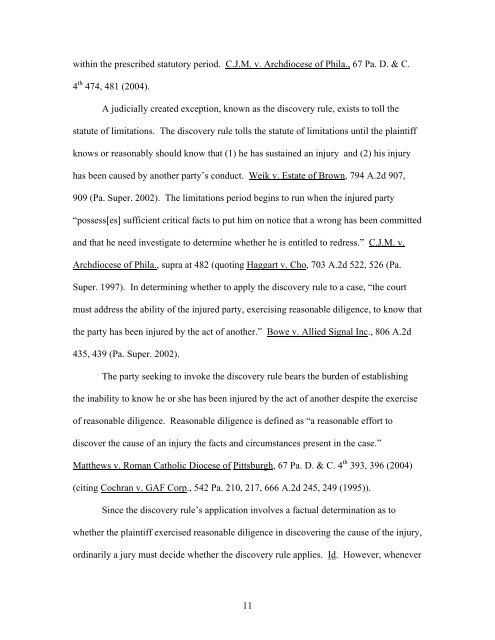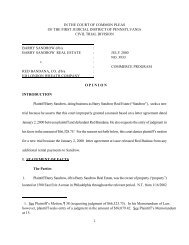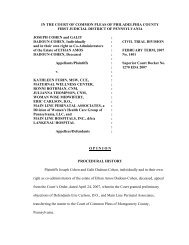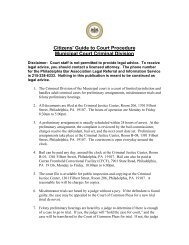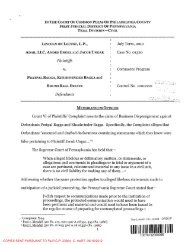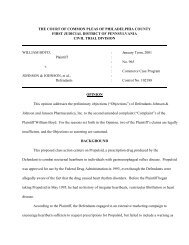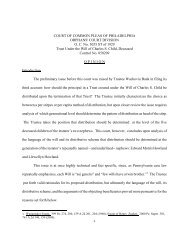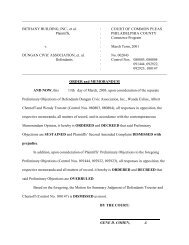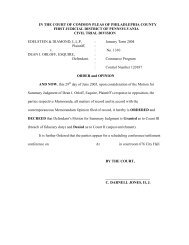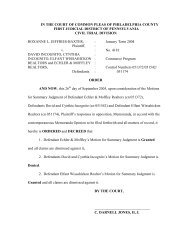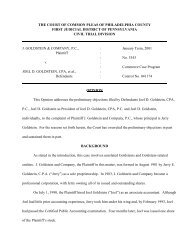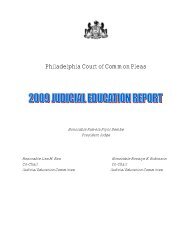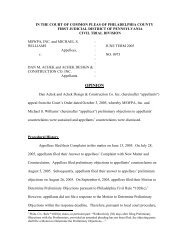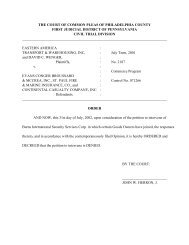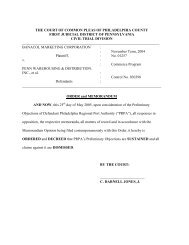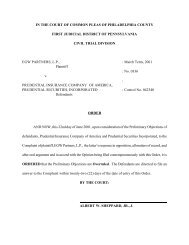BRIAN MALEWICZ, ET. AL. vs MICH'L BAKER - The Philadelphia ...
BRIAN MALEWICZ, ET. AL. vs MICH'L BAKER - The Philadelphia ...
BRIAN MALEWICZ, ET. AL. vs MICH'L BAKER - The Philadelphia ...
You also want an ePaper? Increase the reach of your titles
YUMPU automatically turns print PDFs into web optimized ePapers that Google loves.
within the prescribed statutory period. C.J.M. v. Archdiocese of Phila., 67 Pa. D. & C.<br />
4 th 474, 481 (2004).<br />
A judicially created exception, known as the discovery rule, exists to toll the<br />
statute of limitations. <strong>The</strong> discovery rule tolls the statute of limitations until the plaintiff<br />
knows or reasonably should know that (1) he has sustained an injury and (2) his injury<br />
has been caused by another party’s conduct. Weik v. Estate of Brown, 794 A.2d 907,<br />
909 (Pa. Super. 2002). <strong>The</strong> limitations period begins to run when the injured party<br />
“possess[es] sufficient critical facts to put him on notice that a wrong has been committed<br />
and that he need investigate to determine whether he is entitled to redress.” C.J.M. v.<br />
Archdiocese of Phila., supra at 482 (quoting Haggart v. Cho, 703 A.2d 522, 526 (Pa.<br />
Super. 1997). In determining whether to apply the discovery rule to a case, “the court<br />
must address the ability of the injured party, exercising reasonable diligence, to know that<br />
the party has been injured by the act of another.” Bowe v. Allied Signal Inc., 806 A.2d<br />
435, 439 (Pa. Super. 2002).<br />
<strong>The</strong> party seeking to invoke the discovery rule bears the burden of establishing<br />
the inability to know he or she has been injured by the act of another despite the exercise<br />
of reasonable diligence. Reasonable diligence is defined as “a reasonable effort to<br />
discover the cause of an injury the facts and circumstances present in the case.”<br />
Matthews v. Roman Catholic Diocese of Pittsburgh, 67 Pa. D. & C. 4 th 393, 396 (2004)<br />
(citing Cochran v. GAF Corp., 542 Pa. 210, 217, 666 A.2d 245, 249 (1995)).<br />
Since the discovery rule’s application involves a factual determination as to<br />
whether the plaintiff exercised reasonable diligence in discovering the cause of the injury,<br />
ordinarily a jury must decide whether the discovery rule applies. Id. However, whenever<br />
11


